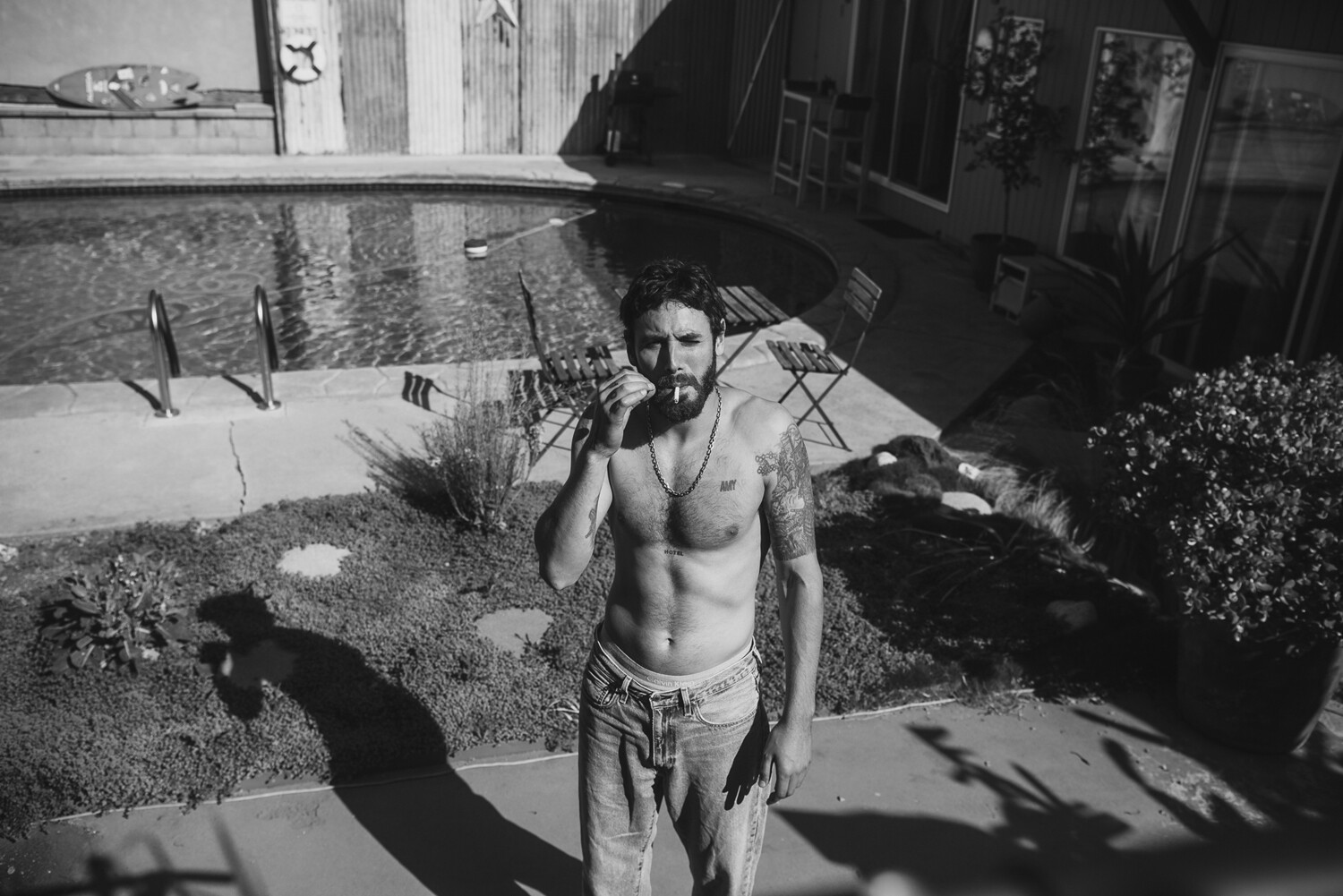Allan Rayman’s Persistence of Vision — FAULT Magazine Photoshoot and Interview
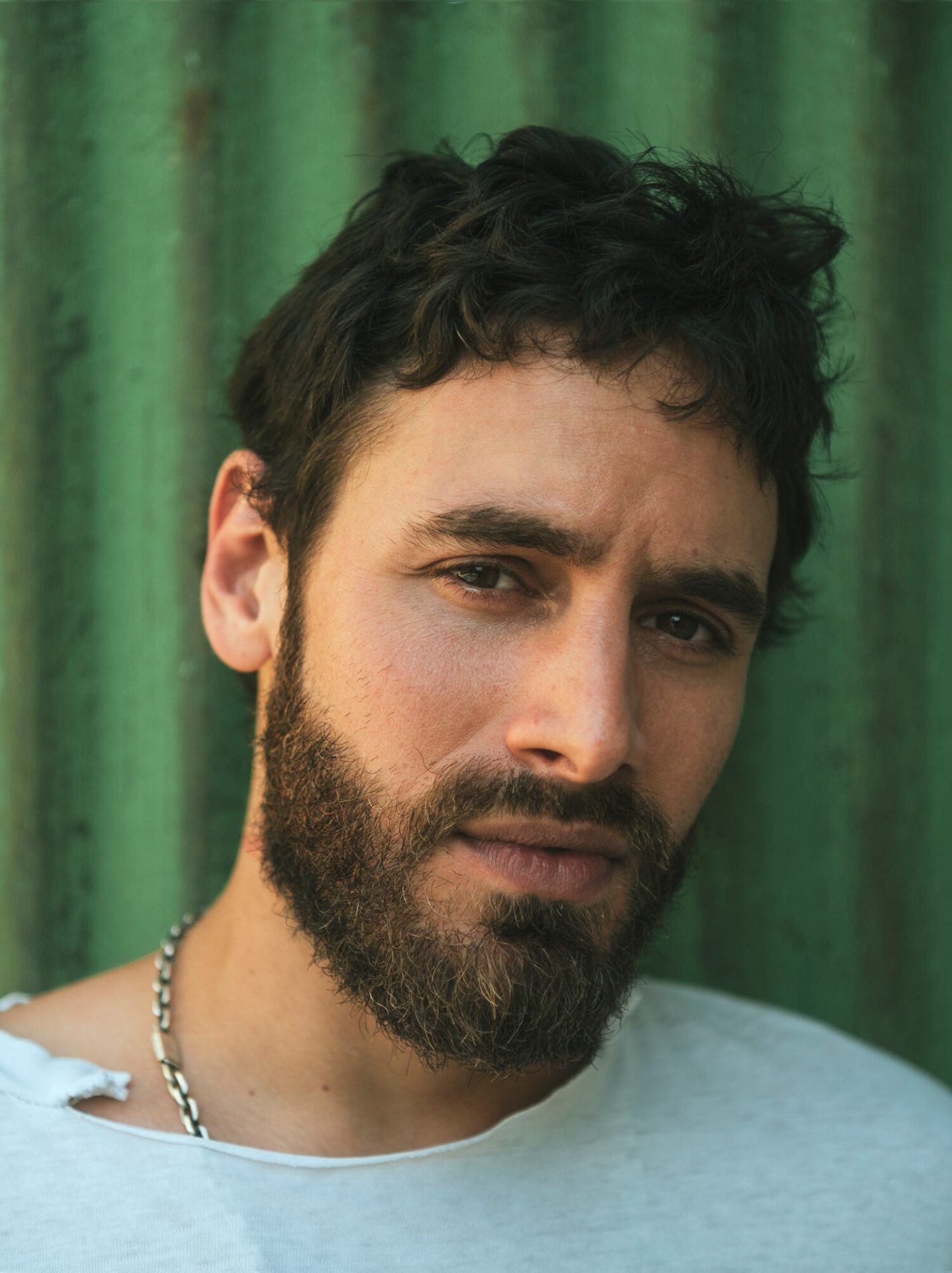
Sometimes, in order to get close to your truest self, you have to pretend to be someone else.
During it’s theatrical run in 1990, Allan Moyle’s Pump Up the Volume underperformed at the box office. However, filled with purpose, the little movie that could has since become a cult classic. It still reverberates. A film both uniquely of its time while being many steps ahead of it, it remains too potent, prescient, and pissed off to simply write off as a cultural curio. And no one knows this better than Toronto-based singer-songwriter Allan Rayman: an artist who continues to defy categorization, and who traces his shadowy persona and long-established sonic flourishes back to this very film.
Pump Up the Volume is the story of Mark Hunter (Christian Slater), a meek, lonely teenager who prefers to fly under the radar. That is, until every night at ten when he assumes a secret identity. Behind the anonymity of a pirate FM radio station and a voice modulator, he broadcasts soliloquies as his shock-jock persona alternately called “Happy Harry Hard-On” or “Hard Harry” (referring to, well, his dang penis). He rants, simulates masturbation on air, and blasts his favourite songs by the likes of Richard Hell and Descendents. For Mark, it’s initially about the release, but then he begins to realize that people are actually listening to him. He develops a passionate, cult-like following at his school. Harry appeals to everyone: the punks, the jocks, the nerds, the preps. Because as “Hard Harry,” Mark says what he actually thinks with every human crinkle unironed. His followers give him power, acclaim, and idolization for that lack of finesse. He opens up about his isolation in his town—enraged by the possibility of having to contort himself into a societal mold laid out for him.
So this is where Rayman has taken many of his cues. Let’s consider Rayman’s own alter ego “Mr. Roadhouse,” and deduce that Allan Rayman is also a character, as Mark is to Slater. So who is the man behind the mask behind the mask? That’s for us to find out, if and when that day ever arrives.
To unpack Rayman and his music, there seems no better place to start than with Moyle’s film. For an artist who never wants to divulge too much, what better way to interrogate him in this way, allowing him to maintain a certain mystery and champion listeners’ interpretations to keep all of that magic alive? FAULT recently connected with the enigmatic Juno Award nominee on tour—specifically, via phone on his drive between gigs from British Columbia to Alberta, Canada—to discuss his latest album, The All Allan Hour, and that vital film as he ushers in a new chapter.
Stream The All Allan Hour
Catch The All Allan Tour
Follow Allan Rayman on Instagram
Photographed exclusively for FAULT by Reto Sterchi in Silver Lake, Los Angeles
Words by Kee Chang
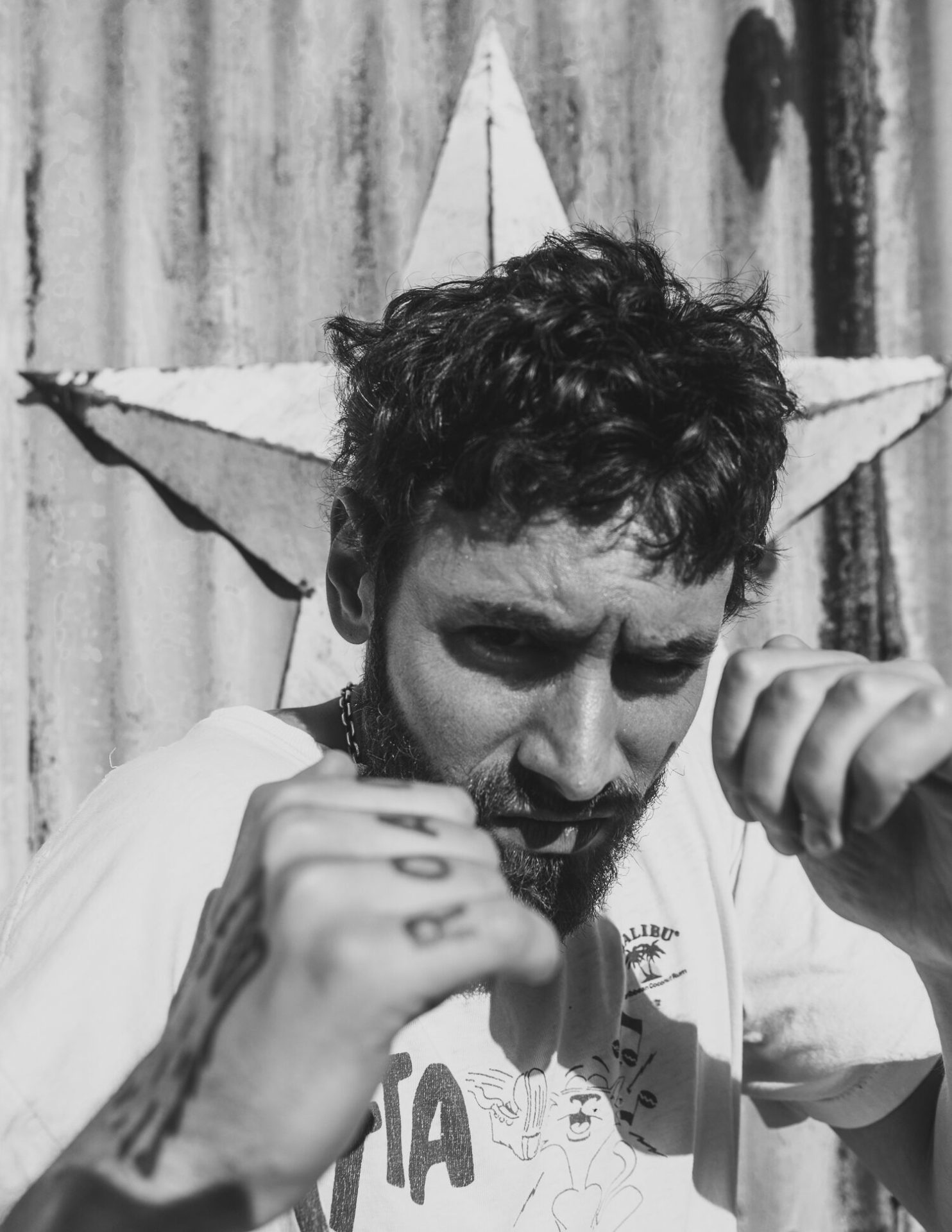
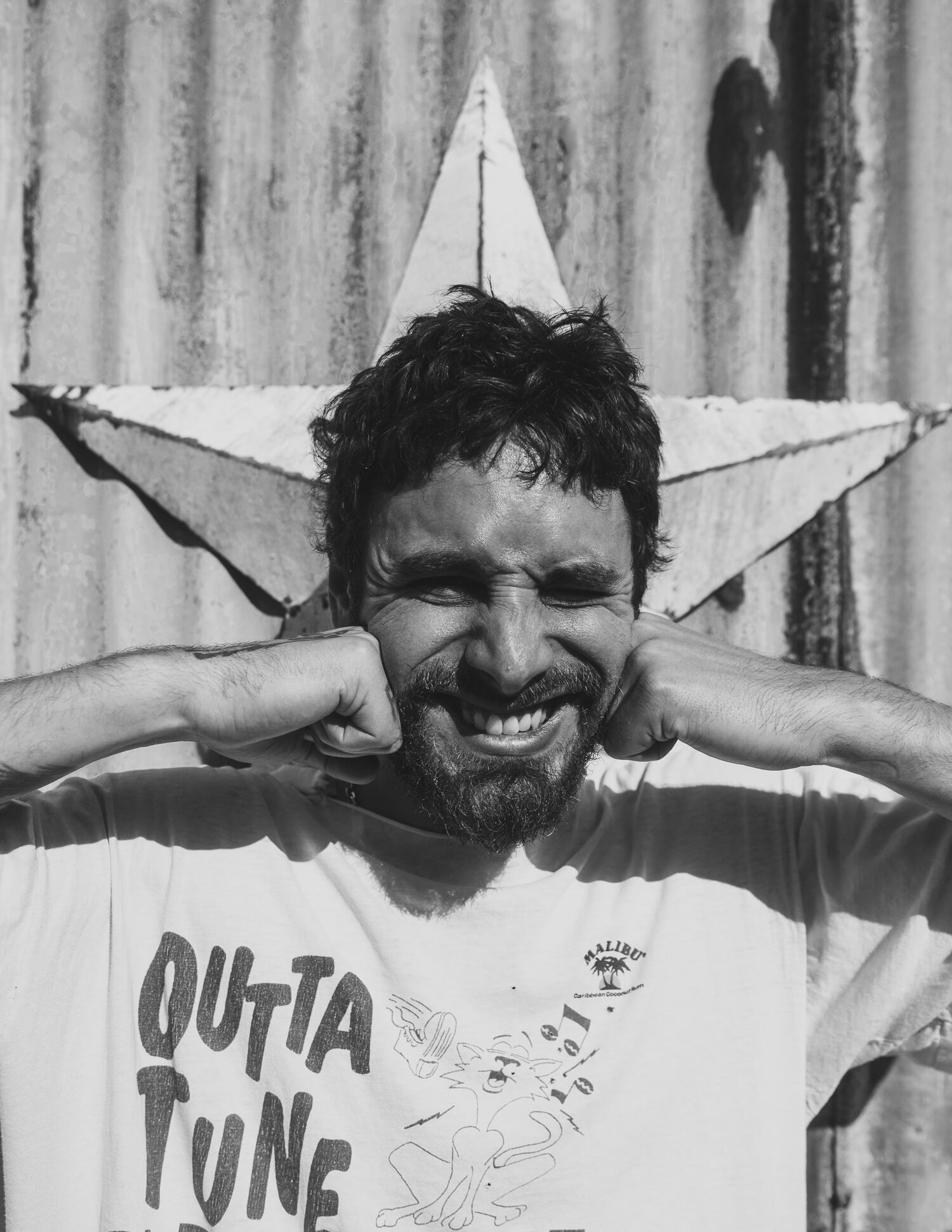
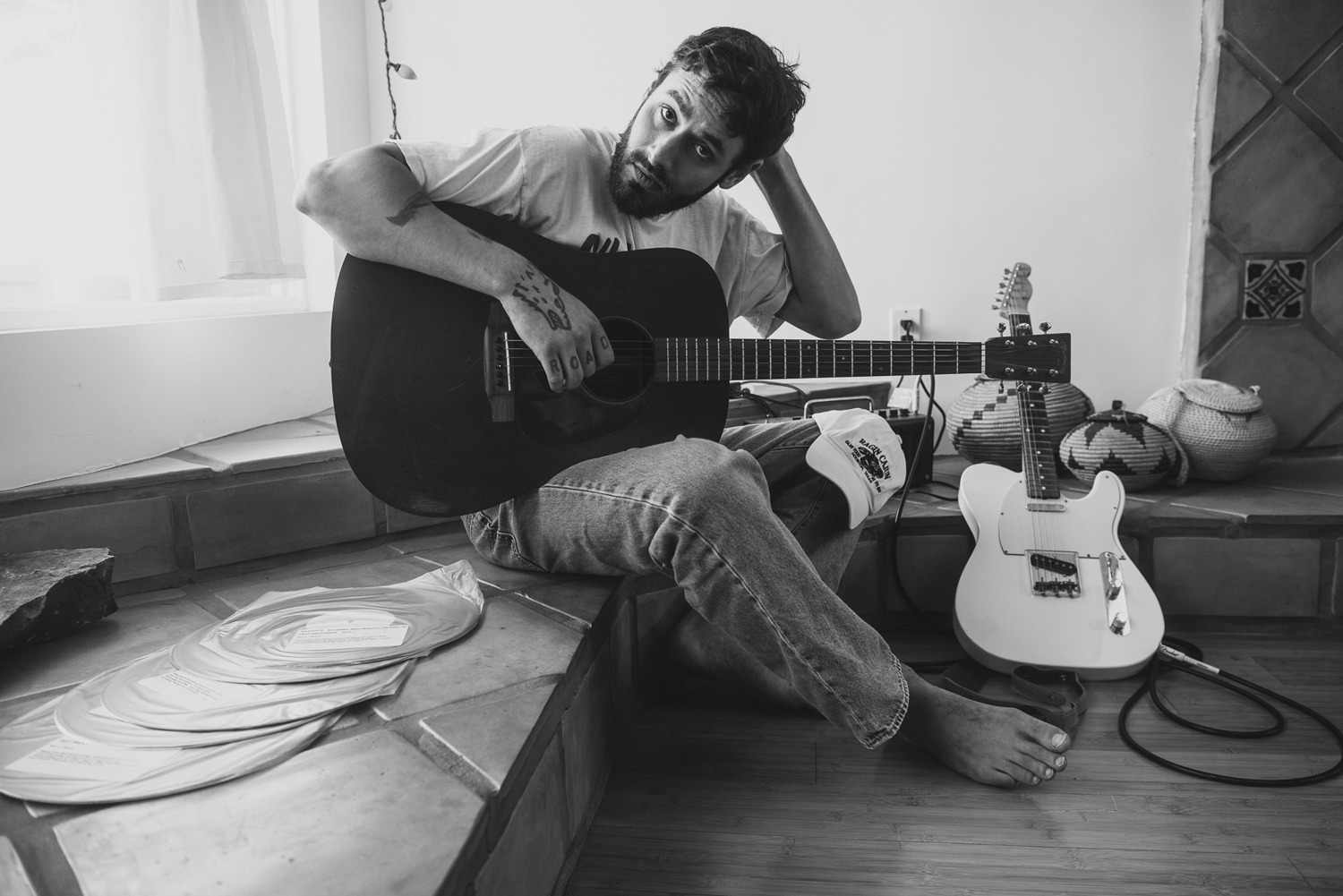
Hi, Allan. Is this a good time to chat?
This is fine, yes. I’m just in the car right now driving up to Edmonton in Canada.
I have serious FOMO right now because you’re on this tour. I caught your show at the Lodge Room in Los Angeles in ’22, which is probably ancient in your world. How’s life on the road?
It’s a dream come true. It’s always such a lucky opportunity when you get to go out and play your songs in front of anyone. I’m just eternally grateful for it. So, I’m doing good.
The All Allan Hour is on heavy rotation. Which tracks are you having most fun playing live?
That’s a great question. I mean, it’s so fresh. I’m still figuring that out right now. Some nights, it’s “The Dance” because it gets everyone moving. “PDA” is also a real vibe. It’s hard to say. Maybe “Seconds Please”? They’re all so fun to play live. That’s one thing about this album: out of my catalogue, it’s the most straightforward and accessible, if that makes sense. It’s translating really well live, and we’re having a great time on the road. We’re also playing a bunch of the older stuff. The sets are about an hour and a half long so it’s a bit of a stretch each night, for sure.
“The Dance” is a standout for me, as is “Time.” But with any great album, I’m sure it will be a cyclical thing. I think each track will end up finding its moment in the sun, so to speak.
Sure, sure. “Time” was the first song we made on the album. It’s a hard one to perform live for me. I’m still figuring out how to capture the same energy we brought on the recording. I love the album. We took a big reach with the whole story and the skits with the advertisements. I think it was the most fun we’ve had making an album, ever. I’m just so happy that people are connecting with it.
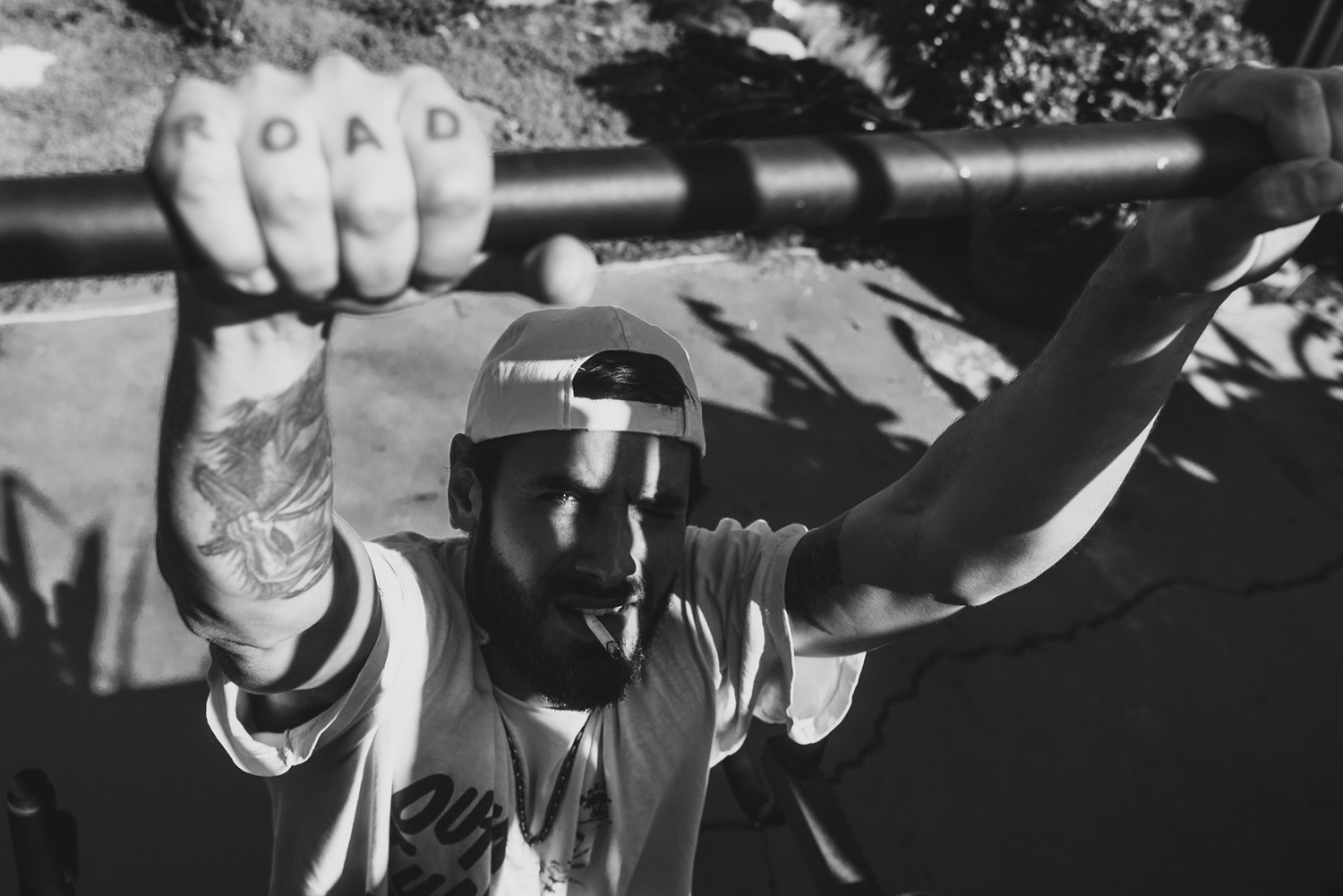
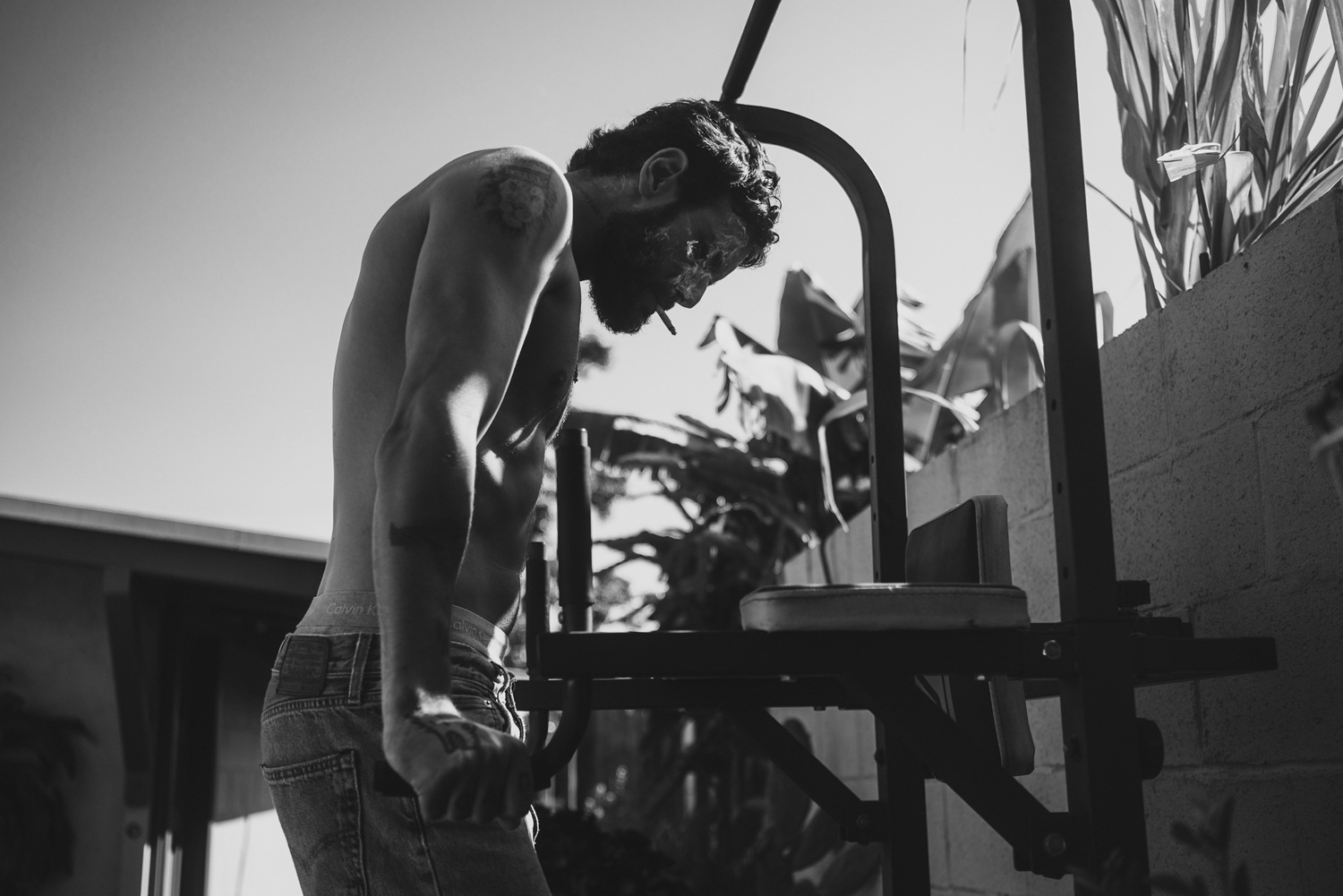
And thanks for doing this. I’ve been following you long enough to know that interviews aren’t exactly your favourite thing. There’s obviously a thing about wanting the music to speak for itself. You know what you want. You’re not just blowing in the wind like so many artists do.
That’s kind of you to say. I never wanted to give press a bad rap. I totally understand its importance. As a music fan myself, I love going back and reading awesome write-ups about some of my older favourite bands. I think about Almost Famous: “Do you wanna be the guy on stage, or do you wanna write about the guys on stage?” They’re both necessary and important in the world of music. So it’s not that I don’t like press. It’s that I make music and perform it and I have a pretty big imagination, but when it comes to personality, I don’t think I have much to offer. That’s just my own opinion.
It’s perfect that you bring up a movie reference because I was just about to tell you I watched Pumped Up the Volume for the first time over the weekend. It felt important to watch it.
Hell yeah. [I’ve had previous albums called] Harry Hard-On and Christian, which was supposed to be called Christian Slater. It’s a whole thing. That movie is essentially the story of the guy behind the guy behind the guy, right? Slater plays Mark, who plays “Harry Hard-On.” We create these ideas of who we’d like to be and try to bring them into the light. Sometimes, that’s easier said than done. Listening to Mark, with his radio show or talkshow, which is now what you’d call a podcast, I guess, people can find themselves through it.
So how did you find out about this movie?
I think it was my mom who put me onto it.
No way.
Yeah, my folks put me onto some of the best movies I’ve ever seen.
Obviously, this was an amazing recommendation. It resonated with you so completely it seems like. When you watched it for the first time, did it flip a switch on your life where you decide to pursue what you really want to pursue, or was that already happening and it’s inspiring you as a conceptual springboard? Put simply, what was happening to you in that moment?
Well, I’m still searching for what I wanna do in life.
Are you really?
I don’t think I’ve figured that out, and maybe I never will. But music has been such an amazing opportunity, and I keep having ideas for things I want to do that keeps me in the game, I guess. I’ve had a pretty realistic approach to music. Success in music is a very hard thing to attain, and there’s different levels of success. You can talk about money, you can talk about fame, or you can talk about me. Success to me is having a vision and working towards it. It takes time. It takes years to fulfill these visions. I think that’s success because it keeps you locked into something that you’re passionate about. That’s happiness to me. So I’ve been able to find that level of success in it, and that is what keeps me in it and moving forward. If I didn’t have any ideas about what I wanted to work on next, or if I wasn’t excited or inspired by something, I’d probably be off doing something else with my time. Luckily, the kid in me is still very much alive and still very much inspired.
And the film’s influence is very much alive on this new album, especially listening to “The All Allan Hour (Full Version)” as an unbroken narrative. It feels authentic because you have an unwavering allegiance to this film. The influence isn’t being snuffed out by any means.
Thank you. That’s amazing, man. I really just wanted to create something nostalgic that would make you feel like you’re in your car in the nineties. I actually have an original version of the album that has real advertisement from the nineties—from April 5th, 1994. I wanted to get really specific. I wanted to have weather reports from Las Vegas and Los Angeles from that date. I wanted to have Power Rangers commercials in there, and also Mighty Ducks 2, which had just come out. We had it all set up, but it would’ve been such an uphill climb, legally as well as financially, to get these things cleared. So ultimately, I just had to rewrite all the advertisements with one of my best buddies. He helped me out with writing some of that. I think we came up with some pretty fun stuff.
You’re worldbuilding. So what’s the significance of that date?
The passing of Kurt Cobain.
I’m such an idiot.
[laughs] I wanted to take a day that was so known for this awful tragedy and spin it around in the same way Tarantino did with Once Upon a Time… in Hollywood. You think it’s leading up to the death of Sharon Tate and the Manson murders, but he sweeps it around. In this universe, there is no Kurt Cobain. There’s a fictional Allan Rayman. He’s the Kurt Cobain character of the nineties there.
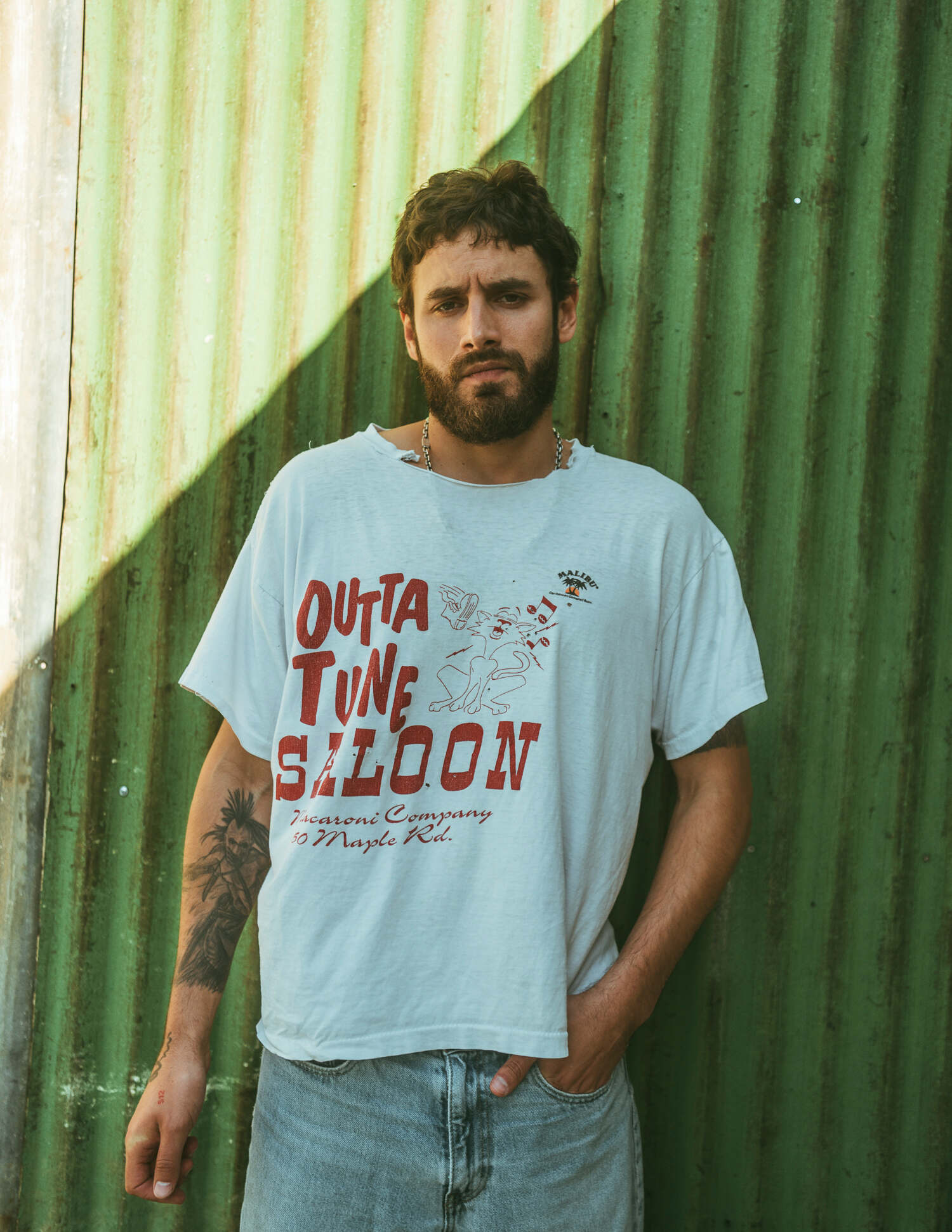
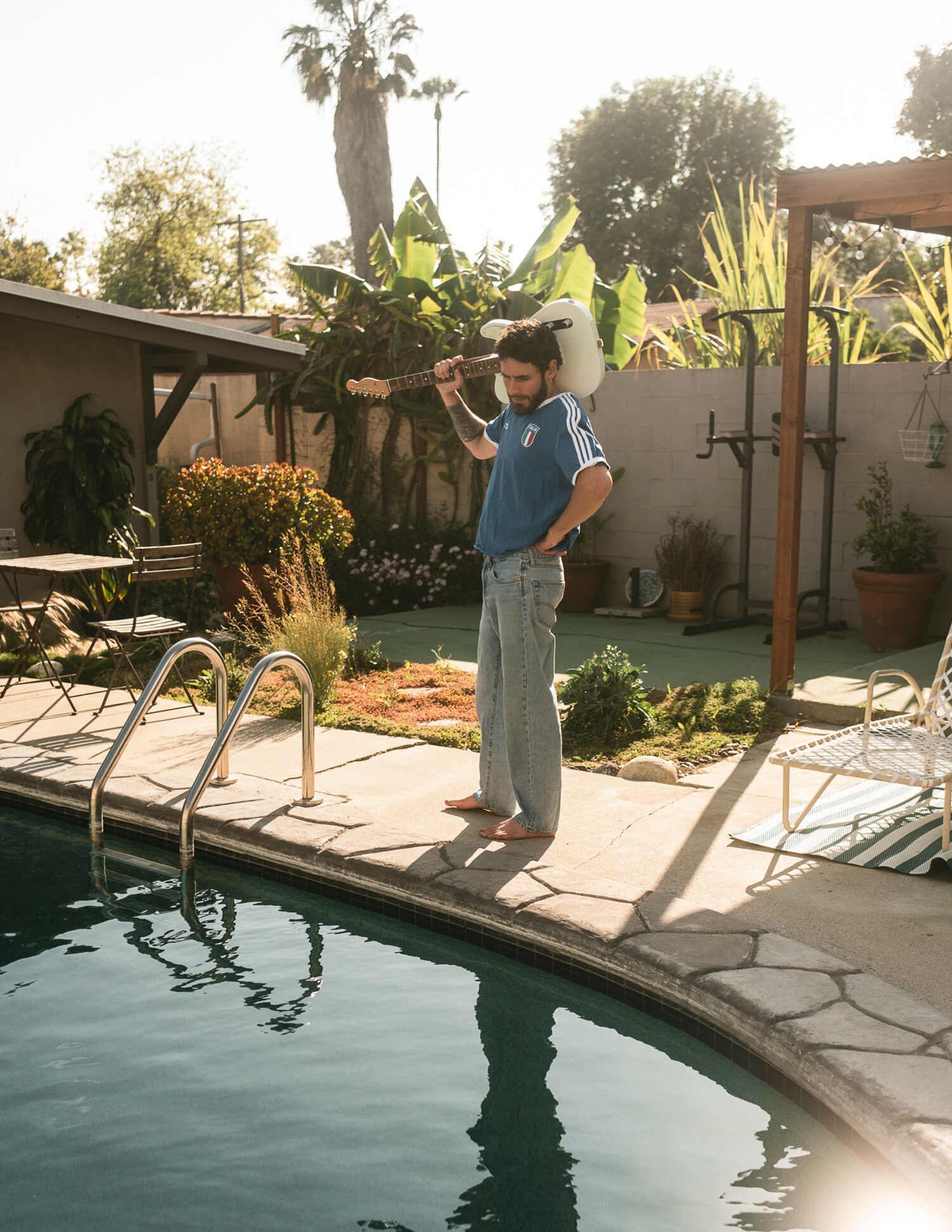

There’s this scene in Pump Up the Volume where Mark, or “Harry Hard-On,” describes what it means to “talk hard.” He says, “I like the idea that a voice can go someplace uninvited and kind of hang out—like a dirty thought in a nice clean mind.” Watching it, these were the moments where I felt like I was beginning to understand why you love this movie so much.
Yes, absolutely. I couldn’t have said it better. It speaks to me in so many ways. I saw myself in that character. I still do. I can go on stage and become whatever this “thing” is. But it ain’t me. I mean, it is me, of course, but it’s not who I am. It’s not who I am all the time, around my friends and stuff. I like to keep my life separate, obviously. That movie just really cut to the core of me. And when he says what you just quoted, he’s referring to a comedian. Lenny Bruce has a book called How to Talk Dirty and Influence People. That’s what Mark reads in the stairwell. I’ve read the book as well.
Mark is playing a character, but “Hard Harry” is still very much him. Surely, “Hard Harry” is closer to the real Mark in moments because he’s totally unfiltered. Is that how you feel?
Well, I’d say that it’s not me on stage, either, but maybe it’s the most unfiltered version of me.
Because behind Mark is also Christian Slater. Behind Allan Rayman is the real you?
I’m sure when I get a little bit older and have more sage wisdom and insight onto my own life, I’ll know the answer to that one. But right now, it’s just a different version of me. It very well might be a more real version of me. Whoever it is, he’s definitely very comfortable up there, that’s for sure.
What’s it like on tour when you have fans coming up to you? Does it ever feel unwieldy?
Well, it’s the closest they might feel to me physically, but the closest they might get to actually knowing me is through the music. I barely engage with the audience on a personal level. I like to keep the intrigue. I like to keep things at an arm’s distance away so it’s about the music first. As selfish as this might sound, I gotta make sure I’m having my fun up there. If I’m not having fun, that’s going to translate and you’re gonna feel that in the audience. So it’s a fine line. I definitely don’t do meet-and-greets. I definitely don’t give too much away about myself when I’m up on stage. But there’s some takeaways, for sure. There’s a chance you might learn a thing or two.
What seems absolutely certain is that donning the mask is giving you a spark: freedom of expression, free thinking, rebellion, and to quote the film directly, “taking charge of your life.”
Absolutely. It’s all of those things. You have to find your own confidence. And it is tough. I say these things, but I’m still trying to figure it all out myself, too. That’s what I love about the movie. The coolest people and the not so cool people at the high school all relate to what Mark is saying, or what “Happy Harry Hard-On” is saying. I think high school is a great metaphor for life and the different groups that you can fall into. That teen angst doesn’t just disappear when you graduate high school. It carries on for at least a little bit after that. For me, the music you make might draw the introvert or it might draw the extrovert. But I don’t really think about that too much when I’m creating. I just try to make something that’s true to me and makes me feel good, if that makes sense.
On at least one occasion in the past, you superimposed the high school experience onto the music industry. The cool kids. The teachers. The principal. You’re just trying to survive.
Yeah, it has felt like that. I mean, I’ve met some amazing people in the music industry. But it’s an intense sphere of influence and you can accidentally fall down paths that’s maybe not right for you. Ultimately, everyone’s gonna do it their own way. I’ve been able to shoot myself in the foot just enough where I can still get back on the road and play in front of some people. I definitely haven’t made this easy for myself, lemme tell you that much. [laughs] But I like who I see in the mirror, you know what I mean? I like the reflection in the mirror. That’s always been the goal for me, too.
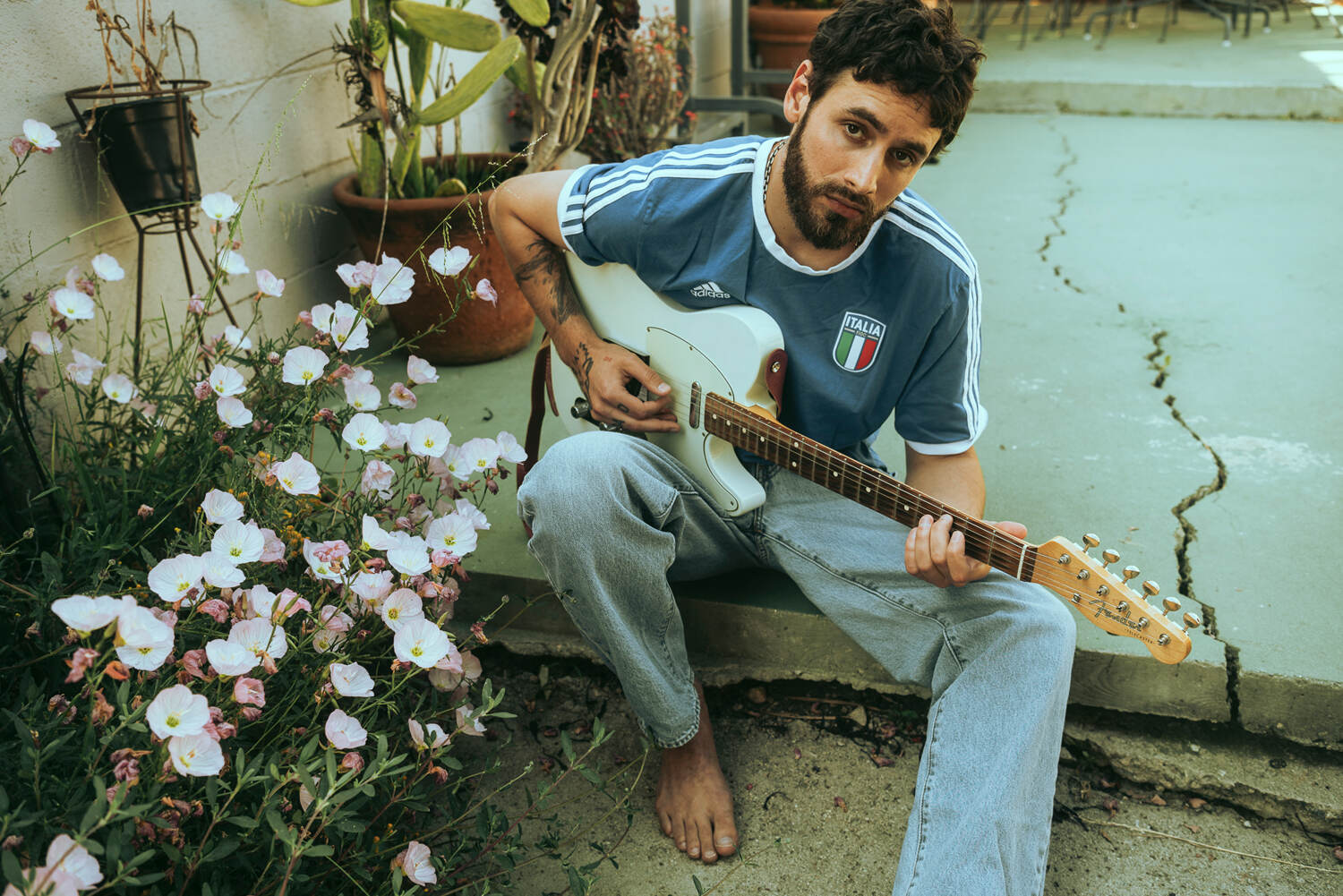
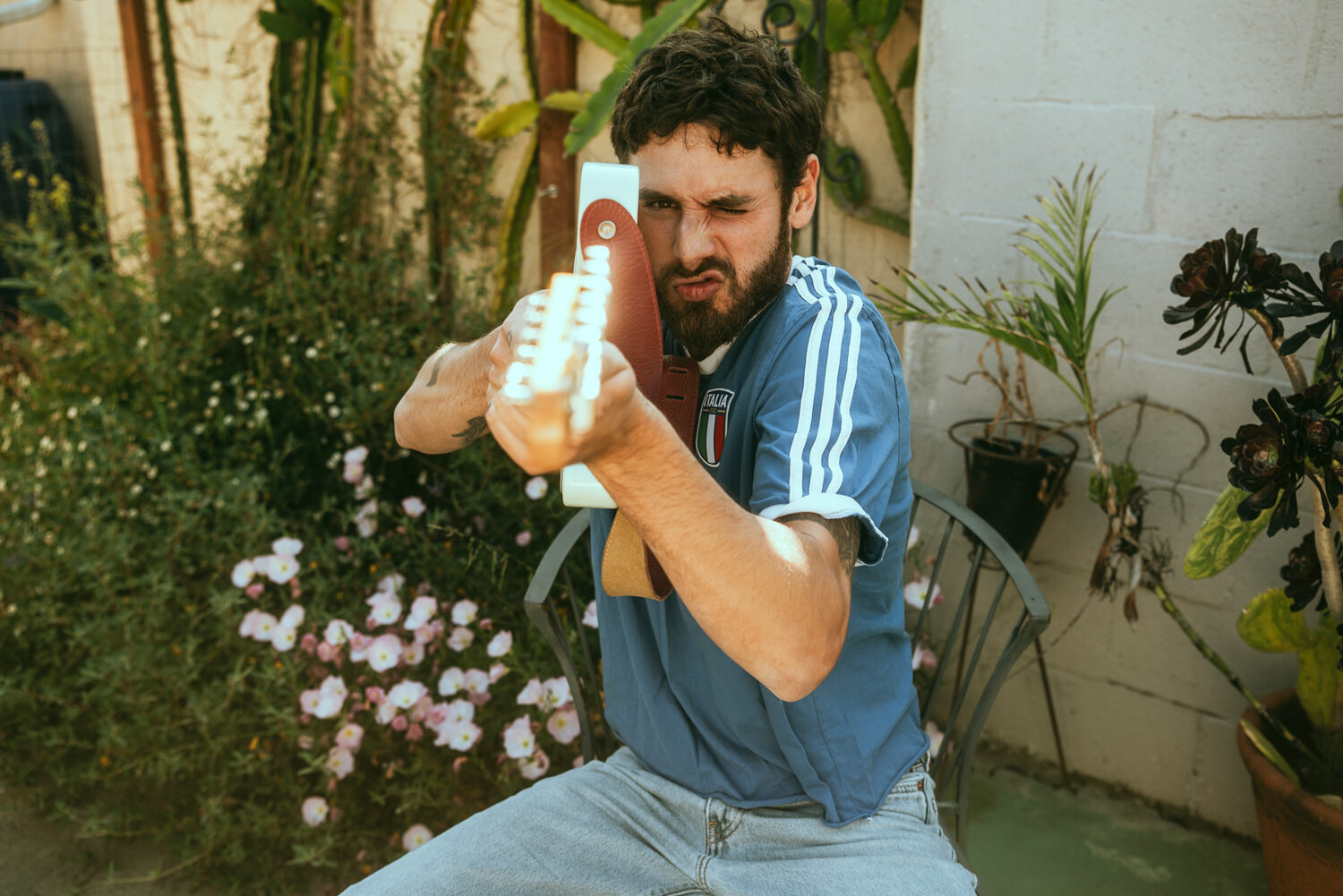
Talking to you right now, film and music feel really inseparable. I mean, imagine my surprise when I came across this quote from you: “I’m a film nut before a music head. I like film more than music.” I think this quote was my primary reason for wanting to unpack your music through discussing films. Do you harbor filmmaking ambitions that we don’t know about?
Of course. I have a lot of ideas for films I’d like to be making. But the thing is, it’s extremely expensive. I know this is gonna sound bad, but that’s why I’m excited by the advancements in AI. For someone like me, maybe in five years time, I’ll be able to make a movie on my own. If you have a vision and the creative mind for it, depending on where the technology is at, it could be extremely exciting. It’s something to look forward to. And I understand that it’s a threat to people’s livelihoods as well—I don’t wish that upon anyone. But as a creative outsider looking in, I’m excited at the thought of finally being able to put some of my ideas to work without having to break the bank. I’ve been sitting on some screenplays that I’ve written.
I’m curious about your film library. What other movies have you taken inspiration from?
Oh, there’s so many. Recently, Barry Lyndon has really blown my mind. Have you heard of it?
Totally. Kubrick. A classic.
It’s incredible. The shots, the writing, the behaviour—all of it. I got really lost in that movie. I’ll hear a quote from the movie and it’ll spark an entire song. That’s how quickly it can happen. Being There with Peter Sellers is another one that has really blown my mind. Again, you can easily turn something like that into an audio experience. The story is really easy to follow and it doesn’t require too much attention. It sucks you in and keeps you there perfectly. Of course, I have to add What Dreams May Come starring Robin Williams. That movie is insane. So there’s three right there.
It’s funny you bring up What Dreams May Come because I showed that to my mom not long ago. She couldn’t believe that a movie like this exists, and I think it’s been largely forgotten.
It’s gonna hit you. It’s gonna make you cry. It’s such a sad movie, and a beautiful interpretation of what might happen after death, which is obviously something that everyone thinks about. For me, that movie really paints a picture. It goes back to a song I have called “Ghost.” That song came out of a personal experience I had, and then watching What Dreams May Come, it just verified that there might be some weight or merit to what I had experienced. It made me feel really good.
“Ghost” is a wonderful track. It’s haunting, melancholic. And with What Dreams May Come, talk about a love story—literally going to hell to find your wife. There’s no bigger journey.
Yes, yes, yes.
This brings us to the question we always end on at the magazine: What is your FAULT?
My heartbreak. It’s the reason I feel so shitty in my heart, probably. And it’s my fault. I did that to myself so I only have myself to blame. I will continue to deal with that as I have been doing.
Is heartbreak also a gift? That seems like gasoline to fire, fueling the music and creativity.
Absolutely. I think our shortcomings are benefits in this career. That’s what you write about and turn into something beautiful. If you can do that, it’s such a blessing. Because a lot of people don’t know what to do with those emotions sometimes. It’s not easy to process things. It hurts. So I’m fortunate that I can turn it into something good, for sure. But it is my fault I’m feeling this way.
